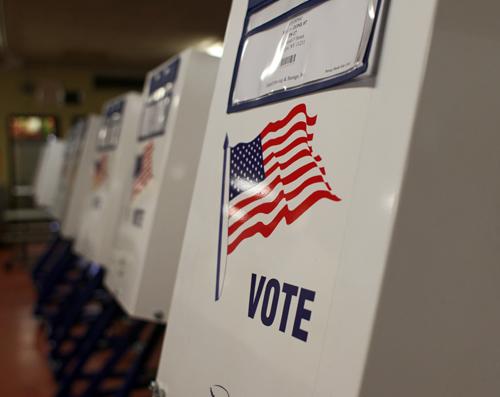Roll Call columnist pushes for mandatory voting in the U.S.
Columnist Norman Ornstein says the U.S. should follow Australia’s lead in requiring mandatory attendance at the polls on Election Day. (Photo by Stephen Nessen via WNYC.)
It’s no secret that voter turnout in America is low. Norman Ornstein, a columnist for Roll Call, hopes to change that.
He explained how in an article published earlier this month as part the “America the Fixable” series in the Atlantic.
Ornstein said the U.S. government should borrow the Australian policy mandating attendance at the polls on Election Day. Citizens would not have to cast a vote, but they would be required — on penalty of a fine that would be easily excused — to appear at their local polling station.
“This is not something where men and women in uniform come to your house and haul you off to the ‘pokey’ if you don’t vote,” Ornstein said. “It’s quite a bit less onerous for people, but it works.”
One of the most significant barriers to instituting some sort of penalty or incentive for voting is the argument that voting is a civic right, not a civic duty, and therefore should not be made compulsory.
To get around this, Ornstein said there needed to be a positive incentive. Instead of charging non-voters with a fine or community service, he would like to see people’s voting stubs turned into lottery tickets.
“My guess is if we do that, overnight we increase our turnout by 25 to 30 percent,” he said.
Compulsory or incentivized voting could do more than increase turnout numbers — it could fundamentally change the way American politics operate.
“It alters the context of the campaign, and it alters the context of politicians when they serve in office,” Ornstein said. “That’s what I’m aiming for, not just getting people to turn out because we like high turnouts.”
Ornstein said if candidates knew their bases were mobilized and ready to vote, they would not feel pressured to focus on divisive issues such as gay marriage and abortion rights. Instead of “firing up the base” with demagoguing, they’d be compelled to dial down their rhetoric and address broader concerns that attract moderate voters.
“If you know that your base is going to be there and their base is going to be there, your incentive is to focus on the voters in the middle who might be persuadable,” Ornstein said. “You focus on the big things: the economy, jobs, education, climate.”
We want to hear your feedback so we can keep improving our website, theworld.org. Please fill out this quick survey and let us know your thoughts (your answers will be anonymous). Thanks for your time!
